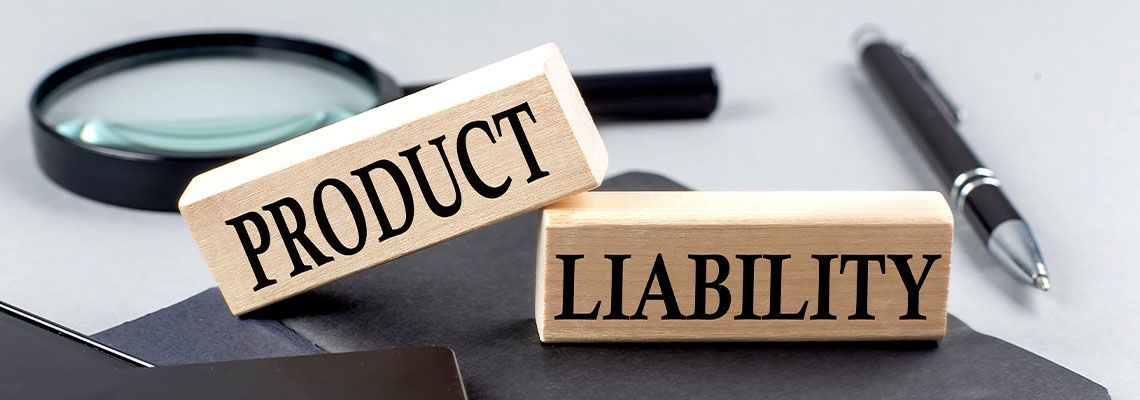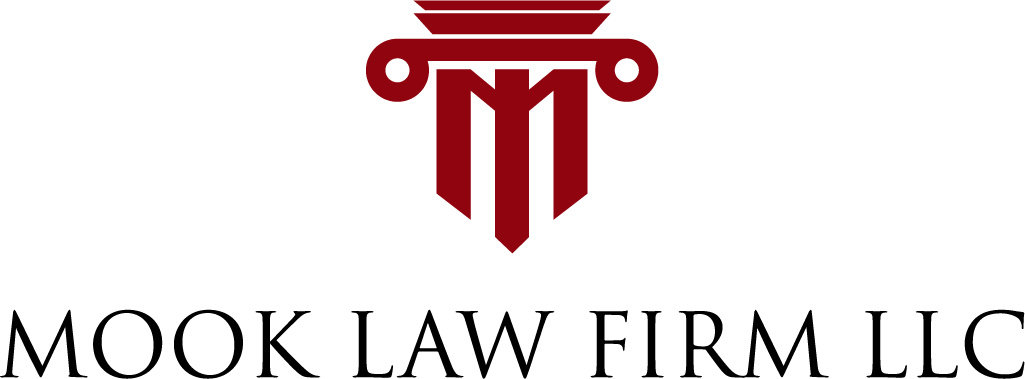
Understanding Your Rights If You’ve Been Harmed by a Defective Product
It can be serious when a product you trusted causes injury. From everyday household appliances to medications and auto parts, defective products can lead to long-term injuries, financial stress, and emotional pain. If you're in this situation, it's important to know you’re not alone, and legal help is available.
Understanding your rights is the first step toward seeking justice. At Mook Law Firm LLC in Kansas City, Missouri, we help injured consumers hold manufacturers and sellers accountable. If you or someone you love has been harmed by a faulty item, read on for more information about your rights and how to protect them.
What Product Liability Means for Injured Consumers
Product liability refers to the legal responsibility manufacturers, distributors, and retailers have for placing dangerous or faulty products into the hands of consumers. When a product causes injury due to a design flaw, manufacturing error, or lack of warning, victims may be entitled to compensation.
These cases fall under civil law, and they can apply to almost any type of product. This includes vehicles, children’s toys, medical devices, tools, electronics, food, and more. Knowing what qualifies as a defective product is the first step toward determining whether a legal claim is possible.
Common Types of Defective Product Claims
Defective product claims usually fall into one of three categories: design defects, manufacturing defects, or failure to warn. Each of these categories focuses on where the flaw originated and how it caused harm to the consumer.
Design defects occur when the product’s design is inherently unsafe, even before it’s manufactured. Manufacturing defects happen during the production process and may affect only a certain batch or unit. Failure to warn, also known as marketing defects, involves missing or inadequate safety instructions or labels.
These distinctions are key when filing a claim, as the legal strategy may vary depending on the type of defect.
Proving Fault in a Product Liability Case
To successfully file a claim, the injured person must show that the product was defective, that the defect caused the injury, and that the product was being used as intended. This can be challenging, especially when companies deny responsibility or claim the product was misused.
Proving these elements often requires expert testimony, documentation of the injury, and evidence of how the product was used. A skilled product liability attorney will collect and present the right details to support the claim.
When it’s time to gather that proof, it helps to know what kind of evidence is most effective.
Important Evidence to Support Your Case
Strong evidence plays a major role in any defective product claim. Keeping the product itself, along with packaging and instruction manuals, can be crucial. These items may show whether the product was damaged, missing warnings, or designed improperly.
Medical records, photos of injuries, and any witness statements are also important. Receipts, warranty paperwork, and purchase information can help prove ownership and use. In more complicated cases, expert evaluations and lab tests may be needed.
Who Can Be Held Liable for a Defective Product?
Liability in a defective product case isn’t always limited to the manufacturer. Depending on the situation, several parties in the supply chain may be responsible, including designers, manufacturers, wholesalers, and retailers.
Even online marketplaces may be held accountable if they sold or advertised the defective item. Some key parties that might face legal responsibility include:
Product manufacturers: The company that made the item may be liable if the defect occurred during design or production.
Component part suppliers: If a part used within a larger product is faulty, the supplier of that part may share liability.
Distributors and retailers: Stores and sellers can be held responsible for putting a known defective product into consumers’ hands.
These defendants may work together to shift blame, making it even more important to have an experienced product liability attorney by your side.
Injuries That May Qualify for Compensation
Product liability cases can involve a wide range of injuries, from minor burns to permanent disability. Common injuries include cuts, broken bones, burns, toxic exposure, allergic reactions, or even death in the most serious cases.
Medical care can be extensive and ongoing, depending on the product involved. For example, a faulty medical device may require revision surgery, while a dangerous food product might lead to long-term digestive issues.
Proving how these injuries impact your daily life is a key part of securing fair compensation.
What Damages Can You Recover?
Victims of defective products may be entitled to recover several types of damages. These include financial losses, medical expenses, and emotional harm. Some of the most common categories include:
Medical expenses: This includes ER visits, surgery, physical therapy, medications, and future medical care related to the injury.
Lost wages and earning capacity: If you had to miss work or can no longer return to your previous job, compensation may be available for income loss.
Pain and suffering: Physical pain and emotional distress are considered non-economic damages that may be recoverable.
Property damage: If the defective product caused damage to your personal belongings or property, those losses may be included.
These damages are often negotiated with insurers or argued in court. Once you know what compensation might be possible, it's important to understand the legal time limits involved.
Time Limits to File a Product Liability Claim
Every state has a statute of limitations that sets the deadline for filing a product liability lawsuit. These time limits vary, but many states require claims to be filed within two or three years of the injury or discovery of the defect.
Waiting too long to file can result in your case being dismissed, even if it would otherwise be valid. That’s why it’s important to speak with a product liability attorney as soon as possible to protect your right to recover damages.
Deadlines can vary depending on the type of product, the injury, and whether the case involves a wrongful death claim. Timing is especially critical in cases involving government entities or products subject to recall.
When a Product Recall Strengthens Your Case
If a product was recalled by the manufacturer or a government agency like the Consumer Product Safety Commission (CPSC), it may support your case. A recall can show that the defect was serious enough to warrant action, strengthening the argument for negligence or liability.
However, recalls aren’t required to file a product liability claim. Even if the item hasn’t been officially recalled, the company may still be responsible for injuries it caused. If a recall is in place, your attorney will use it as part of the broader legal strategy.
Along with recalls, it’s helpful to understand the different legal theories that may apply to your case.
Legal Theories Behind Product Liability Claims
There are three main legal theories used in defective product cases: negligence, strict liability, and breach of warranty. Each theory offers a different path toward holding the responsible party accountable.
Some key distinctions between these legal theories include:
Negligence: This theory focuses on proving that the defendant failed to use reasonable care in designing, manufacturing, or labeling the product.
Strict liability: Under this rule, the injured person doesn’t have to prove negligence. Instead, they must only show that the product was defective and caused injury during normal use.
Breach of warranty: This applies when the seller or manufacturer violates an express or implied promise that the product would be safe or functional.
These legal theories may overlap, and your product liability attorney will help determine the best strategy for your case. As the legal process unfolds, knowing what to expect can help reduce stress and confusion.
What to Expect During the Legal Process
Once a claim is filed, the process typically includes investigation, evidence gathering, negotiations, and possibly a lawsuit. Early stages may involve communication with the product manufacturer’s insurance company.
If a fair settlement isn’t offered, the case may proceed to discovery, where both sides exchange documents, records, and witness statements. From there, the matter could be resolved through settlement talks, mediation, or trial.
Throughout the process, a product liability attorney handles legal filings, deadlines, and negotiations. Their role is to protect your interests while building a strong case that proves liability and damages.
Professional Product Liability Advocate
At Mook Law Firm LLC, we understand how life-changing it can be to suffer injuries from a defective product. With our experienced product liability attorney, we’re committed to protecting your rights. If you've been harmed by a faulty product, in Kansas City, Missouri, contact us at Mook Law Firm LLC today to schedule a consultation and take the first step toward justice.

